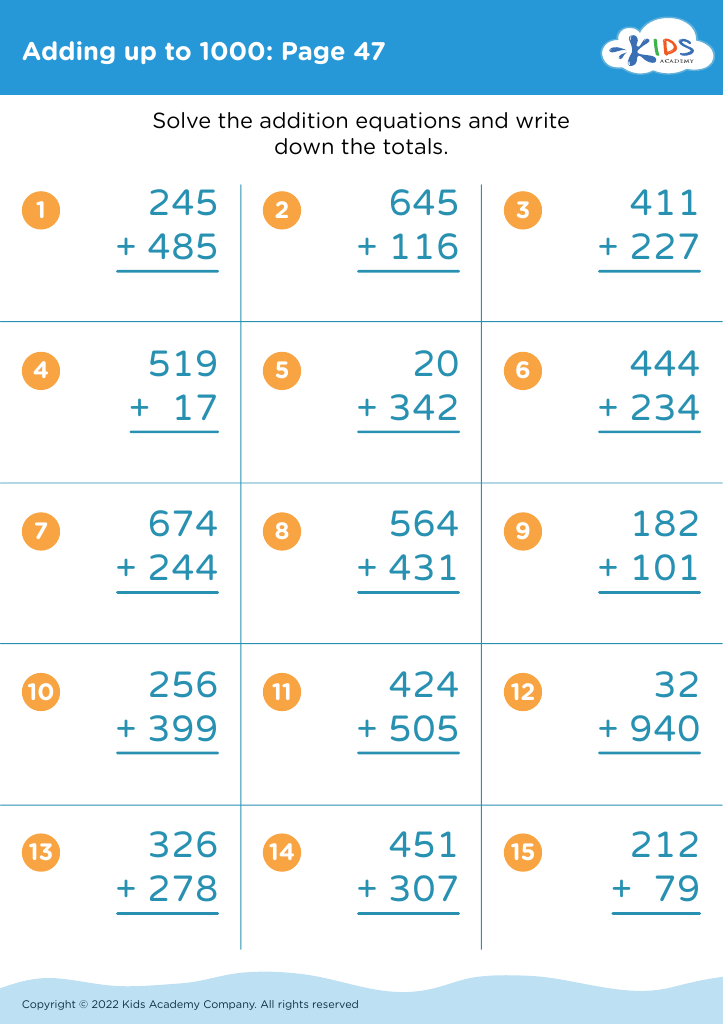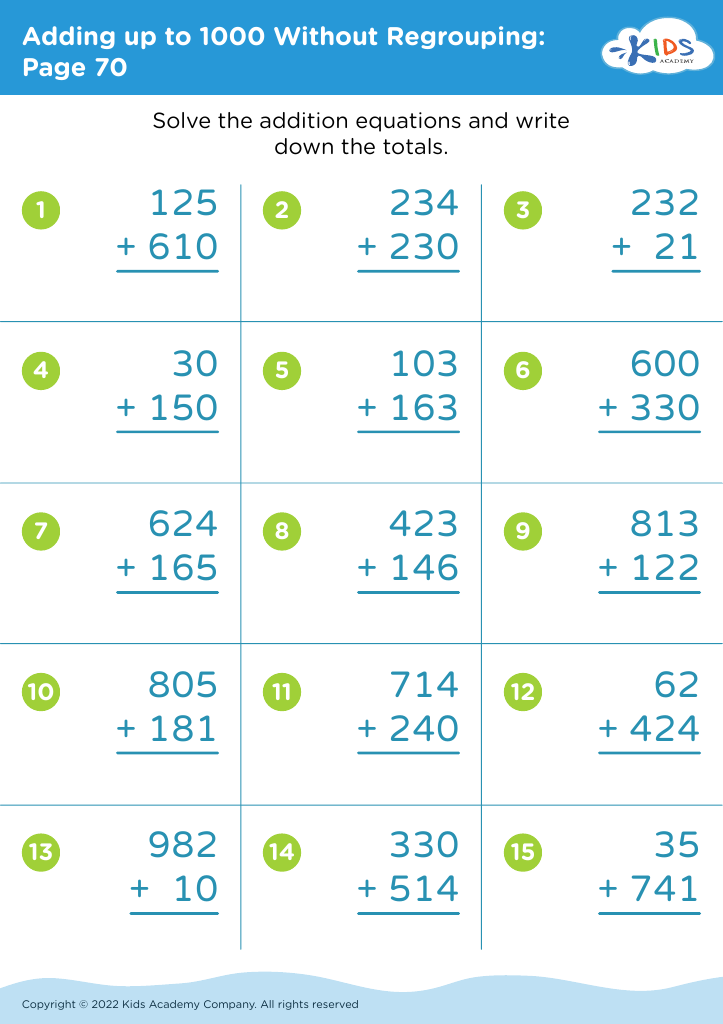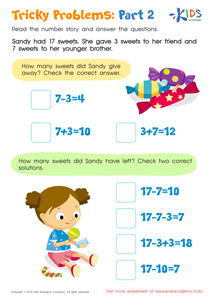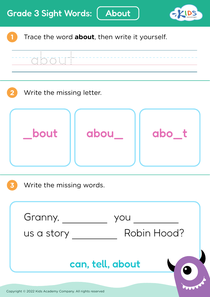Understanding quantity Grade 3 Adding up to 1000 Worksheets
3 filtered results
-
From - To
Explore our "Understanding Quantity: Grade 3 Adding Up to 1000 Worksheets" designed to enhance your child's mathematical skills. These engaging worksheets focus on developing a strong grasp of quantity, empowering students to master addition concepts within the 1000 range. Through interactive exercises, learners will build confidence in their ability to tackle various addition problems, strengthen their number sense, and improve their problem-solving skills. Ideal for in-class or at-home practice, these resources provide a fun and effective way to support your child's academic growth. Download now to help your third grader excel in math and make learning a delightful experience!
Understanding quantities, particularly in Grade 3, is crucial for students as they build foundational math skills. Mastering the concept of adding up to 1000 enables children to develop strong number sense, which empowers them to solve more complex problems in the future.
For parents and teachers, promoting this understanding plays a key role in fostering confidence and independence in young learners. When students grasp how to manipulate numbers and comprehend their values, they become more engaged and interested in math, enhancing their overall academic performance.
Additionally, the ability to add up to 1000 prepares students for real-world applications, such as budgeting, shopping, and measurements. It also supports the development of critical thinking and problem-solving skills, essential traits in today's world.
Moreover, students gain experiences in collaboration when they discuss and solve problems together, further enhancing their social skills. Therefore, both parents and teachers should prioritize ensuring children are comfortable with quantities and addition, as it directly impacts their learning trajectory and sets the stage for future success in math and other academic areas. The investment in understanding these concepts will pay off in building competent, confident learners ready to tackle life's challenges.


















